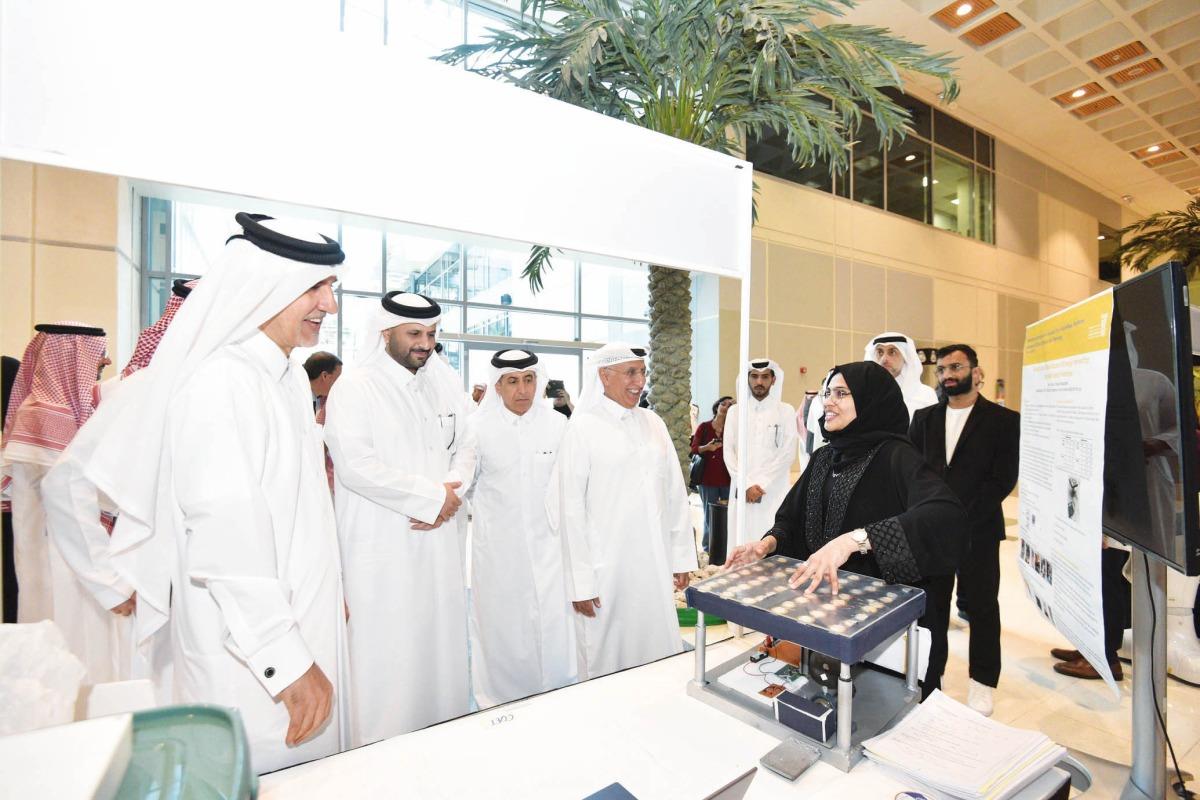
UDST Conference Focuses On STEM, TVET-Based Education
Doha, Qatar: The Ministry of Education and Higher Education (MoEHE) is working to support STEM and TVET based education and training by increasing technical and vocational schools, said a top official. STEM stands for Science, Technology, Engineering, and Mathematics and TVET is Technical and Vocational Education and Training.
Undersecretary of the Ministry of Education and Higher Education Dr. Ibrahim bin Saleh Al Nuaimi said that the Ministry is also developing educational tracks, integrating STEM subjects into basic curricula, linking them, and encouraging technical and vocational education and training. He noted that the initiative will help students to acquire important scientific and practical experiences that help them enrol in the best universities and gives those who hold technical certificates the opportunity to complete their educational journey and use the advanced professional skills they have acquired to meet the needs of society.
Al Nuaimi was speaking atb the opening session of an“International Symposium on Education and Skills for a Future-Ready Workforce: STEM and TVET for a Sustainable and Resilient Society” which is being hosted by University of Doha for Science and Technology (UDST).
This seminar is being held in response to the decisions made by the Committee of Ministers of Higher Education and Scientific Research in the Gulf Cooperation Council countries to establish a forum for studying specialised fields that are required by the current and future job market.
The two-day conference brings together regional educational institutions, industry stakeholders and policymakers to initiate dialogue on the role of STEM and TVET education in creating an industry-ready workforce. The event also provides a platform to develop a GCC-wide approach to education and workforce mobility in the region.
President of UDST Dr. Salem Al Naemi
He added that studies suggest that the number of jobs in the“STEM” curriculum is expected to increase by more than 8 percent compared to other specializations, as well as an increase in employment in developing websites and technological programs by more than 20 percent by 2029, in addition to the creation of new jobs in big data and software engineering.“UDST comes as a model in higher education to complete students' various professional and technical paths, along with other universities in the country,” said Al Nuaimi.
He said that developing legislation and policies to advance STEM and TVET education is extremely important, and falls within the third National Development Strategy of Qatar 2024-2030, for raising the percentage of skilled workers and graduates.“It is also very important to raise community awareness about the importance of this type of education,” said Al Nuaimi.
President of UDST Dr. Salem Al Naemi, said:“There is a high number of job opportunities available in theSTEM fields locally and globally, yet a remarkable shortage of graduates and professionals with the necessary qualificationsand developed skills to take on these roles.
“It is our responsibility now, as educational institutions, to close the gap between future industry needs and educational output. The Third Qatar National Development Strategy 2024-2030 has set ambitious targets for the country, requiring 46% of the workforce to be in skilled roles, and 18% of students to graduate in STEM fields by 2030.”
He said that these are significant goals, and it is more important than ever that we continue working with MoEHE to bolster access to STEM education at UDST, and amplify our Technical and Vocational Education and Training (TVET).
The event was also attended by Assistant Undersecretary for Qatar's Migrant Labour Affairs Sheikha Najwa bint Abdul Rahman Al Thani, Director of the UNESCO Doha Office for Gulf States and Yemen Salah Khaled, Head of the International Labour Organization (ILO) Office in Doha Max Tunon and many high-level delegates. The symposium hosted keynote talks on aligning education with industry needs, focusing on technology and workforce-readiness in closing the global skills gap, and an energized panel discussion on industry-academia partnerships.
The day ended with specialized breakout sessions on academic programs for a green economy, and digital literacy. The second day will feature engaging presentations on governance frame works and novel approaches to TVET teaching, as well as breakout forums centered on AI in Education and Skills Initiatives.

Legal Disclaimer:
MENAFN provides the
information “as is” without warranty of any kind. We do not accept
any responsibility or liability for the accuracy, content, images,
videos, licenses, completeness, legality, or reliability of the information
contained in this article. If you have any complaints or copyright
issues related to this article, kindly contact the provider above.


















Comments
No comment